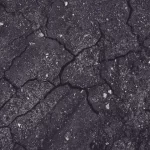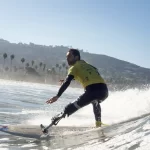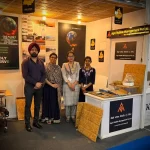Institut Curie is recruiting 14 PhD students through its international program called EuReCa (Europe, Research & Care).
This program, part funded by the European Commission’s MSCA COFUND scheme, provides PhD students with a 3-year doctoral contract, a high level interdisciplinary, inter-sectorial, as well as international training and coaching sessions with personalized career development plans, secondments and mentoring.
PhD research projects in life sciences cover Institut Curie’s main research domains:
✓ Biology & Chemistry of Radiations, Cell Signaling & Cancer
✓ Development, Cancer, Genetics & Epigenetics
✓ Integrative Tumour Biology, Immunology & Environment
✓ Multiscale Physics-Biology-Chemistry & Cancer
Institut Curie brings together a world-class multidisciplinary cancer research center and a model hospital group in Paris and surroundings. By embracing cross-disciplinary approaches, it drives the discovery of more effective treatments and leads to improved patient care.
Covid-19 notice: Please note that the entire recruitment process will be done online and all necessary precautions will be taken on arrival according to the sanitary situation in September 2022.
Open positions
Project 1
Histone variant H3.3 and cellular programs during development and cancer
Thesis supervisor(s): Geneviève Almouzni & Iva Simeonova
Research group: Chromatin Dynamics
Project 2
Shaping of biological tissues by topological defects
Thesis supervisor(s): Carles Blanch-Mercader & Isabelle Bonnet
Research group: Physico-Chimie Curie Lab
Project 3
Impact of transposable element activity on genome stability and organization during meiosis
Thesis supervisor(s): Deborah Bourc’his
Research group: Epigenetics decisions and Reproduction
Project 4
Evaluation by electronic questionnaires of quality of life and fear of cancer recurrence in the follow-up of patients treated for uveal melanoma, and their relationships with satisfaction with oncologist-patient communication
Thesis supervisor(s): Anne Brédart & Sylvie Dolbeault
Research group: Psychopathology and Health Processes Laboratory
Project 5
Control of two antagonistic cellular phenotypes with a single molecule
Thesis supervisor(s): Mathieu Coppey
Research group: Light-based Observation and Control of Cellular Organization
Project 6
The role of mechano-chemical cues in vertebrate axial patterning and somite generation
Thesis supervisor(s): Karine Guevorkian and Benoit Sorre
Research group: Dynamic Control of Signaling and Gene Expression
Project 7
Causal inference for live cell imaging and single-cell multi-omics data
Thesis supervisor(s): Hervé Isambert & Pascal Hersen
Research group: Reconstruction, Analysis and Evolution of Biological Networks
Project 8
Finding a viral needle in a nuclear haystack: molecular mechanism of HIV detection by NONO-cGAS in the nucleus
Thesis supervisor(s): Xavier Lahaye & Nicolas Manel
Research group: Innate Immunity
Project 9
Studying the role of lung resident myeloid cells in the response to radiation
Thesis supervisor(s): Arturo Londoño-Vallejo & Charles Fouillade
Research group: DNA Repair, radiations and innovative cancer therapies
Project 10
Plasma membrane mechanics during the formation of the first mammalian epithelium
Thesis supervisor(s): Jean-Léon Maître
Research group: Mechanics of mammalian development
Project 11
Investigating the role of Polycomb in epigenetic regulation and inheritance during mouse germline formation and embryogenesis: study of a new member of the PRC2 complex, EZHIP (Ezh2 Inhibitory Protein) using transgenic model
Thesis supervisor(s): Raphaël Margueron & Katia Ancelin
Research group: Maintenance of Transcriptional Repression by Polycomb Proteins
Project 12
Antitumour therapy targeting the RNA interference pathway
Thesis supervisor(s): Eliane Piaggio & Enzo Poirier
Research group: Translational immunotherapy and Stem Cell Immunity
Project 13
Identification of Pediatric high-risk tumor master regulators: a pan-cancer study
Thesis supervisor(s): Gudrun Schleiermacher & Florence Cavalli
Research group: Computational Biology and Integrative Genomics of Cancer /
Translational Pediatric Oncology
Project 14
Role of intracellular pathways exploited by viruses in tumor cell secretion of extracellular vesicles and their immune functions
Thesis supervisor(s): Clotilde Théry & Lorena Martin-Jaular
Research group: Extracellular vesicles, immune responses and cancer
Eligibility criteria
- Early-stage researchers (ESR) shall at the call deadline be in the first four years (full-time equivalent research experience) of their research careers and have not been awarded a doctoral degree.
Full-time equivalent research experience is measured from the date when a researcher obtained the degree which would formally entitle him or her to embark on a doctorate. - Applicants may not have resided or carried out their main activity (work, studies, etc.) in France for more than 12 months in the 3 years prior to January 10th, 2022.
Time spent as part of a procedure for obtaining refugee status under the Geneva Convention, compulsory national service and/ or short stays such as holidays are not taken into account. - Applicants must be in possession of a European master degree or equivalent master’s degree which would formally entitle them to embark on a doctorate.
Selection process
Application deadline: January 10th, 2022 at 4:00pm (CET)
Candidates have to complete an online form in English in time via the web-based application portal. Applications will be evaluated through a three-step process:
- Eligibility check of applications in Jan.-Feb. 2022
- 1st round selection: Evaluation & ranking of applications by the Review Board in March-April 2022
- 2nd round selection: Shortlisted candidates are invited for an online interview session by the Selection Committee in May 11-13, 2022.
Final results will be given in June 2022. Start of PhD on September 1st, 2022.
Additional comments
The EuReCa PhD Program is in English.
International students willing to apply for the EuReCa PhD Program should inquire about the visa procedure regarding their country.
Web site for application & more details:
https://training.institut-curie.org/eureca
Please indicate that you saw this advert on Academic Positions when applying.
This project has received funding from the European Union’s Horizon 2020 research and innovation programme under the Marie Skłodowska-Curie actions grant agreement no. 847718.





